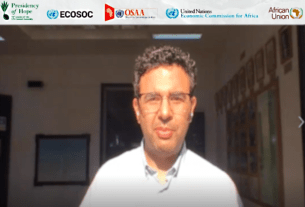Climate change and sustainability have become pressing global concerns, urging humanity to take immediate action. The Earth’s climate is undergoing significant transformations, primarily due to human activities. This essay explores the interconnectedness of climate change and sustainability, highlighting the urgent need for collective efforts to mitigate the adverse effects and ensure a sustainable future for generations to come.
- Understanding Climate Change: Climate change refers to long-term alterations in temperature patterns, weather events, and overall climatic conditions. The primary driver of this phenomenon is the excessive emission of greenhouse gases (GHGs), predominantly carbon dioxide (CO2), resulting from human activities such as burning fossil fuels, deforestation, and industrial processes. These emissions trap heat in the atmosphere, leading to the greenhouse effect and subsequent global warming.
- Impacts of Climate Change: The consequences of climate change are far-reaching and diverse. Rising global temperatures have caused the melting of polar ice caps and glaciers, leading to sea-level rise. This phenomenon threatens coastal regions, island nations, and low-lying areas, displacing communities and endangering ecosystems. Additionally, extreme weather events such as hurricanes, droughts, floods, and heatwaves have become more frequent and intense, posing significant risks to human lives, agriculture, and infrastructure.
- The Role of Sustainability: Sustainability serves as the guiding principle in addressing climate change and mitigating its impacts. It entails meeting present needs without compromising the ability of future generations to meet their own needs. Sustainability encompasses environmental, economic, and social dimensions and requires a holistic approach to ensure a balanced and harmonious coexistence between humans and nature.
- Transition to Renewable Energy: To combat climate change, a crucial step is transitioning from fossil fuels to renewable energy sources such as solar, wind, and hydroelectric power. Renewable energy technologies not only reduce GHG emissions but also offer long-term sustainability benefits. Governments, businesses, and individuals must collaborate to invest in and promote clean energy solutions to accelerate the global energy transition.
- Sustainable Land Management and Conservation: Protecting and restoring natural ecosystems is vital for climate change mitigation and maintaining a sustainable environment. Afforestation and reforestation initiatives can help absorb CO2 emissions, as trees act as carbon sinks. Sustainable land management practices, including responsible agriculture, forest management, and biodiversity conservation, promote resilience and preserve vital ecosystems.
- Circular Economy and Resource Efficiency: Shifting toward a circular economy model is essential for sustainable development. This approach minimizes waste generation and promotes the efficient use of resources by emphasizing recycling, reusing, and reducing consumption. By closing the material loop, the circular economy reduces resource extraction, minimizes pollution, and lowers energy demands, contributing to climate change mitigation.
- Sustainable Urban Development: Rapid urbanization presents both challenges and opportunities for sustainability. Sustainable urban development involves designing cities that prioritize energy efficiency, green infrastructure, public transportation, and waste management. By implementing eco-friendly practices, such as green building design and smart city technologies, we can reduce carbon emissions and enhance the quality of life for urban dwellers.
Climate change poses an unprecedented threat to our planet’s ecosystems, societies, and future generations. Embracing sustainability is our best defense against this crisis. By transitioning to renewable energy, practicing sustainable land management, adopting circular economy principles, and promoting sustainable urban development, we can mitigate climate change’s adverse effects and create a more sustainable and resilient world. Only through collective action and a shared commitment to sustainability can we ensure the well-being of current and future generations while preserving the beauty and diversity of our planet.



